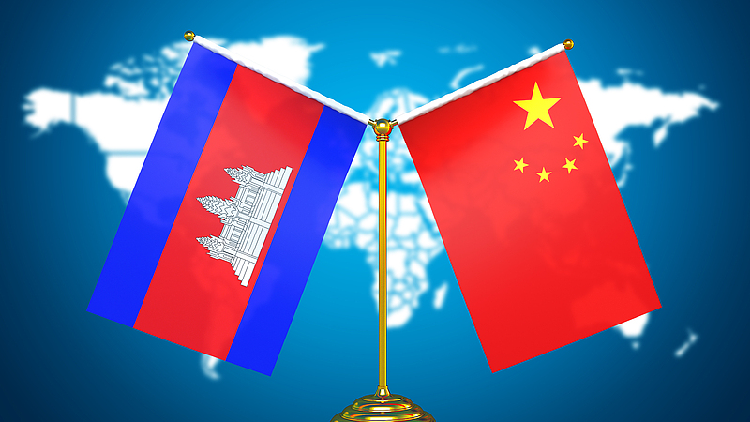Premier Li Highlights China's Commitment to Expanding Economic and Trade Cooperation with Cambodia
Chinese Premier Li Qiang vows to strengthen trade and investment ties with Cambodia to boost economic cooperation

Chinese Premier Li Qiang affirmed on Tuesday that China stands ready to enhance collaboration with Cambodia, particularly in promoting trade and investment liberalization, signaling a new phase of economic and trade partnership between the two nations. The remarks were delivered during a meeting with Cambodian Prime Minister Hun Manet, held on the sidelines of the ASEAN-China-GCC Summit.
Li noted that Chinese President Xi Jinping had recently paid a historic visit to Cambodia, marking a significant milestone as both countries announced the establishment of an all-weather China-Cambodia community with a shared future for the new era. According to Li, this development underscores how China-Cambodia relations continue to lead the way in building a broader community with a shared future for mankind, while further deepening the longstanding ironclad friendship between the two sides.
Highlighting the importance of continued progress, Li pledged that China is eager to work with Cambodia to act upon the outcomes of President Xi's landmark visit. This includes strengthening high-level exchanges, deepening political mutual trust, and utilizing mechanisms such as the China-Cambodia Intergovernmental Coordination Committee to advance practical engagement across a diverse range of areas. Li emphasized that by bolstering these efforts, the two countries can effectively respond to external uncertainties with the certainty of an enduring partnership.
Li also outlined ambitions to accelerate the synergy between the Belt and Road Initiative and Cambodia's Pentagonal Strategy, including the fast-tracked implementation of plans for the Industrial Development Corridor and the Fish and Rice Corridor. These projects are expected to open new chapters of cooperation and foster innovative growth avenues.
Encouraging greater investment, Li expressed China's willingness to see more Chinese enterprises investing in Cambodia, particularly in sectors like infrastructure, digital economy, advanced manufacturing, and clean energy. He also highlighted the positive results achieved through recent bilateral efforts to curb cross-border crimes, calling for even stronger measures to safeguard the safety and security of citizens from both countries.
Against the backdrop of what he described as an increasingly turbulent global situation, Li emphasized that China, together with Cambodia and other regional partners, must uphold solidarity and collaboration. This, he argued, is necessary to jointly oppose unilateralism and power politics, uphold international fairness and justice, maintain the multilateral trading system, and secure the stability and smooth operation of industrial and supply chains—contributions that would ultimately inject positive momentum into global peace, stability, and prosperity.
For his part, Prime Minister Hun Manet welcomed the deepening bilateral relationship, describing President Xi's recent visit as a new milestone in the enduring friendship between the two nations. He reiterated Cambodia’s steadfast commitment to the one-China policy and its support for China’s core interests, including sensitive issues such as Taiwan, Hong Kong, Xinjiang, and Xizang. Hun Manet also voiced opposition to external intervention in China's internal affairs.
The Cambodian leader conveyed his country’s readiness to work closely with China in realizing the objectives set during President Xi’s visit. This includes increased high-level exchanges, utilization of dialogue platforms, enhanced practical cooperation, strengthening people-to-people connections, and joint efforts to tackle cross-border crime. Hun Manet expressed support for China’s major global initiatives and stressed Cambodia's intention to bolster coordination at the multilateral level, aiming to defend multilateralism, resist protectionism, uphold regional security and stability, and promote shared development on the global stage.




